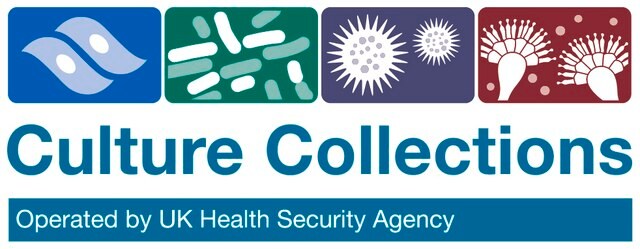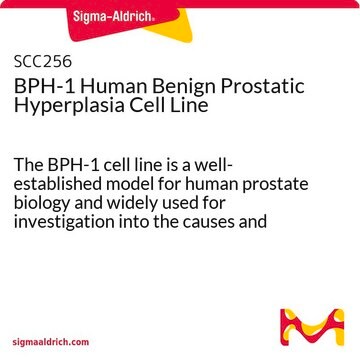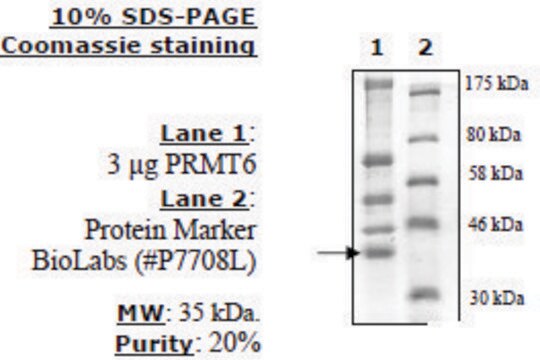PNT1A human
NOTE: Both the cell line and DNA from the cell line may be available for this product. Please choose -1VL or VIAL for cells, or -DNA-5UG for DNA, 95012614, human prostate, Epithelial
Faça loginpara ver os preços organizacionais e de contrato
About This Item
Código UNSPSC:
41106514
Produtos recomendados
fonte biológica
human prostate
embalagem
tube of 5 μg 95012614-DNA-5UG
pkg of vial of cells 95012614-1VL
modo de crescimento
Adherent
cariótipo
Aneuploid
morfologia
Epithelial
produtos
Not specified
receptores
Dihydrotestosterone receptor
técnica(s)
cell culture | mammalian: suitable
Condições de expedição
dry ice
temperatura de armazenamento
−20°C
Origem de linhagem celular
Human post pubertal prostate normal, immortalised with SV40
Descrição de linhagem celular
Established by immortalisation of normal adult prostatic epithelial cells by transfection with a plasmid containing SV40 genome with a defective replication origin. The primary culture was obtained from the prostate of a 35 year old male at post mortem. The cells contain the SV40 genome and express large T protein. They present the phenotype of differentiated luminal prostatic cells with the expression of cytokeratin 8 and 18 (markers for luminal glandular epithelia) and vimentin. Cytokeratin14, a marker of epithelial basal cells, is not expressed. PNT1A cells are non-tumourigenic in nude mice.
Aplicação
PNT1A has been used to determine the variation in metabolite levels of human DU145 prostate cancer and PNT1A cells after treatment with selenomethionine (SeM) and Se-methylselenocysteine (SeMSC). It has also been used to study the effects of angiotensin II (Ang II) and relaxin 2 (RLN2) on the viability, proliferation, adhesion, migration and invasion of PNT1A cells.
Study of proliferation, oncogene activation and differentiation of adult prostatic cells and initial steps leading to transformation.
Meio de cultura
RPMI 1640 + 2mM Glutamine + 6 -10% Foetal Bovine Serum (FBS).
Rotina de subcultura
Split sub-confluent cultures (70-80%) 1:3 to 1:10 i.e. seeding at 2-4x10,000 cells/cm2 using 0.25% trypsin or trypsin/EDTA; 5% CO2;37°C.
Outras notas
Additional freight & handling charges may be applicable for Asia-Pacific shipments. Please check with your local Customer Service representative for more information.
Escolha uma das versões mais recentes:
Certificados de análise (COA)
Lot/Batch Number
It looks like we've run into a problem, but you can still download Certificates of Analysis from our Documentos section.
Se precisar de ajuda, entre em contato Atendimento ao cliente
Já possui este produto?
Encontre a documentação dos produtos que você adquiriu recentemente na biblioteca de documentos.
Nossa equipe de cientistas tem experiência em todas as áreas de pesquisa, incluindo Life Sciences, ciência de materiais, síntese química, cromatografia, química analítica e muitas outras.
Entre em contato com a assistência técnica




